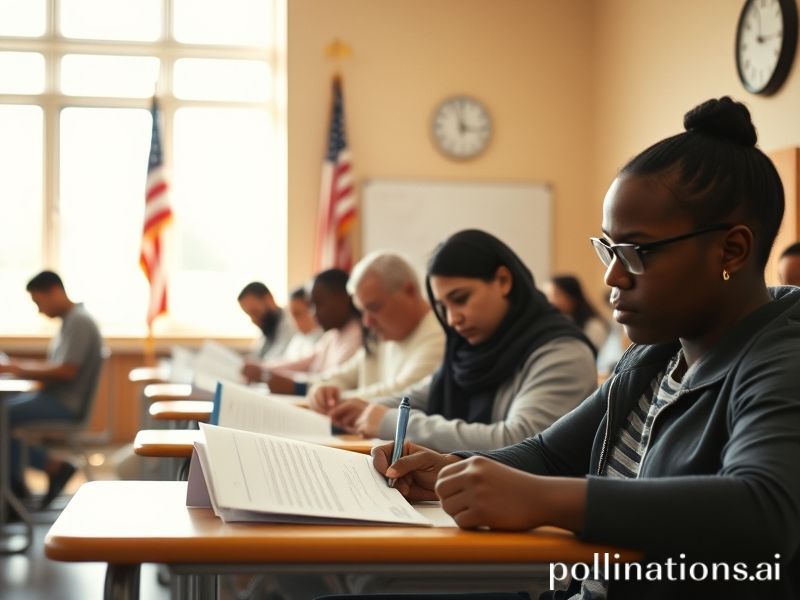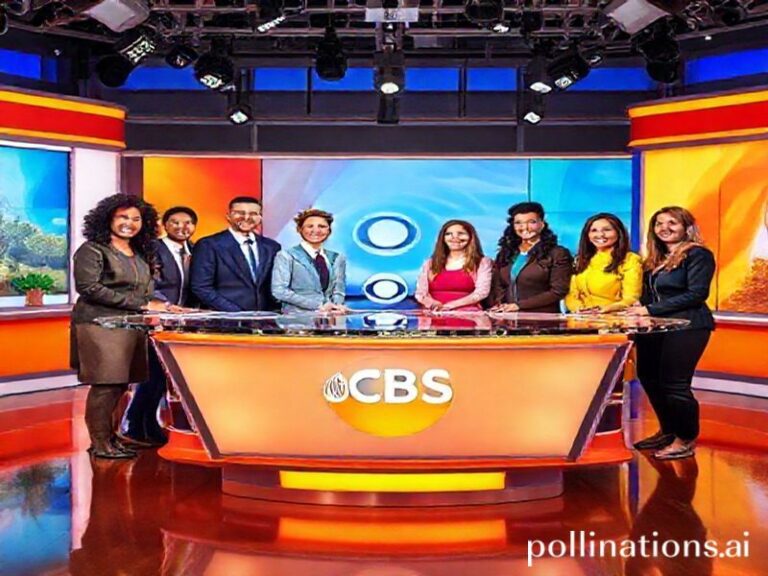Global Citizenship Tests: The World’s Most Expensive Pub Quiz
Passport to Purgatory: How the Humble Citizenship Test Became the World’s Most Politicized Pop-Quiz
By Our Man in the Queue, Watching the World Fill Out Form 47-B in Triplicate
LONDON—Somewhere between the multiple-choice question about the national tree and the oral recitation of a centuries-old poem, the modern citizenship test stops being an exam and turns into performance art. From Canberra to Copenhagen, governments have discovered that the fastest way to look tough on migration is to make newcomers name three 19th-century trade union leaders—bonus points if they can do it while balancing a tray of local delicacies and apologizing for colonialism in the Queen’s English (or the President’s French, or the Chancellor’s German, depending on the weather).
The format is depressingly universal: a battery of trivia whose practical utility is on par with remembering the exact shade of the interior minister’s childhood bedroom. Australia asks which cricketer’s face adorns the postage stamp. Canada demands the year Nunavut became a territory, presumably to ensure future citizens can navigate an emergency trivia night in Yellowknife. The United States wants you to know that the only thing Franklin was afraid of was unnecessary joy. (The answer is “B: becoming too fond of it,” which also doubles as the unofficial motto of U.S. immigration policy.)
What unites these disparate questionnaires is not historical rigor but political theater. Each question is a tiny flag-wrapped audition: prove you deserve to live here by loving us more than we love ourselves. Fail to identify the composer of the national anthem and you’re clearly a sleeper agent; pronounce “Worcestershire” correctly and you’re practically knighted on the spot. The whole spectacle is a ritual purification, a bureaucratic baptism where the holy water is lukewarm and the font leaks taxpayer money.
Look closer and you’ll spot the geopolitical fingerprints. Britain, in the throes of Brexit penance, recently added questions about values—tolerance, democracy, queue etiquette—because nothing says “tolerant democracy” like a £1,330 fee to be told you’re not quite British enough. Meanwhile, Japan has quietly reduced the language requirement for elderly applicants, presumably on the theory that anyone willing to spend retirement navigating Shibuya Crossing has already suffered enough.
The real prize isn’t knowledge; it’s legitimacy. A freshly laminated certificate grants the holder the right to complain about immigrants—now retroactively including their former self—at dinner parties. In this way, the test functions as a transnational initiation into the world’s most exclusive club: people who can say “I earned my passport” without a trace of irony. The rest of us, born into citizenship like heirs to a mildly dysfunctional family firm, merely inherit the right to lose it on a technicality.
Global implications? Imagine a planet where every border crossing requires a karaoke rendition of the host country’s greatest hits. Nations would outsource grading to call centers in Manila, staffed by polyglot adjudicators who can spot a botched high note at fifty paces. Diplomatic incidents would erupt over disputed chord progressions. The United Nations would deploy blue-helmeted choirs to de-escalate tensions—an initiative doomed the moment someone assigns Switzerland yodeling duty.
Yet beneath the absurdity lies a darker calculus. States know that most applicants will cram, pass, and promptly forget who invented the national dish. That’s not a bug; it’s the entire business model. The test is less about knowledge retention than about manufacturing consent: a legally binding promise to pretend the national myth is more coherent than it ever was. In exchange, you get to pay taxes, jury duty, and the occasional war.
So next time you see a nervous candidate whispering the capitals of obscure provinces, spare a thought. They’re not just memorizing facts; they’re auditioning for the privilege of being disappointed by their new government in a language they’ve only half mastered. And if they fail? There’s always next year’s syllabus—now featuring 40% more historical grievances and a lightning round on regional cheeses.
Welcome to citizenship in the 21st century: equal parts Stanford prison experiment and pub quiz. Bring a pen, bring a dream, and for the love of bureaucracy, remember which side of the road we drive on. It changes more often than you’d think.







